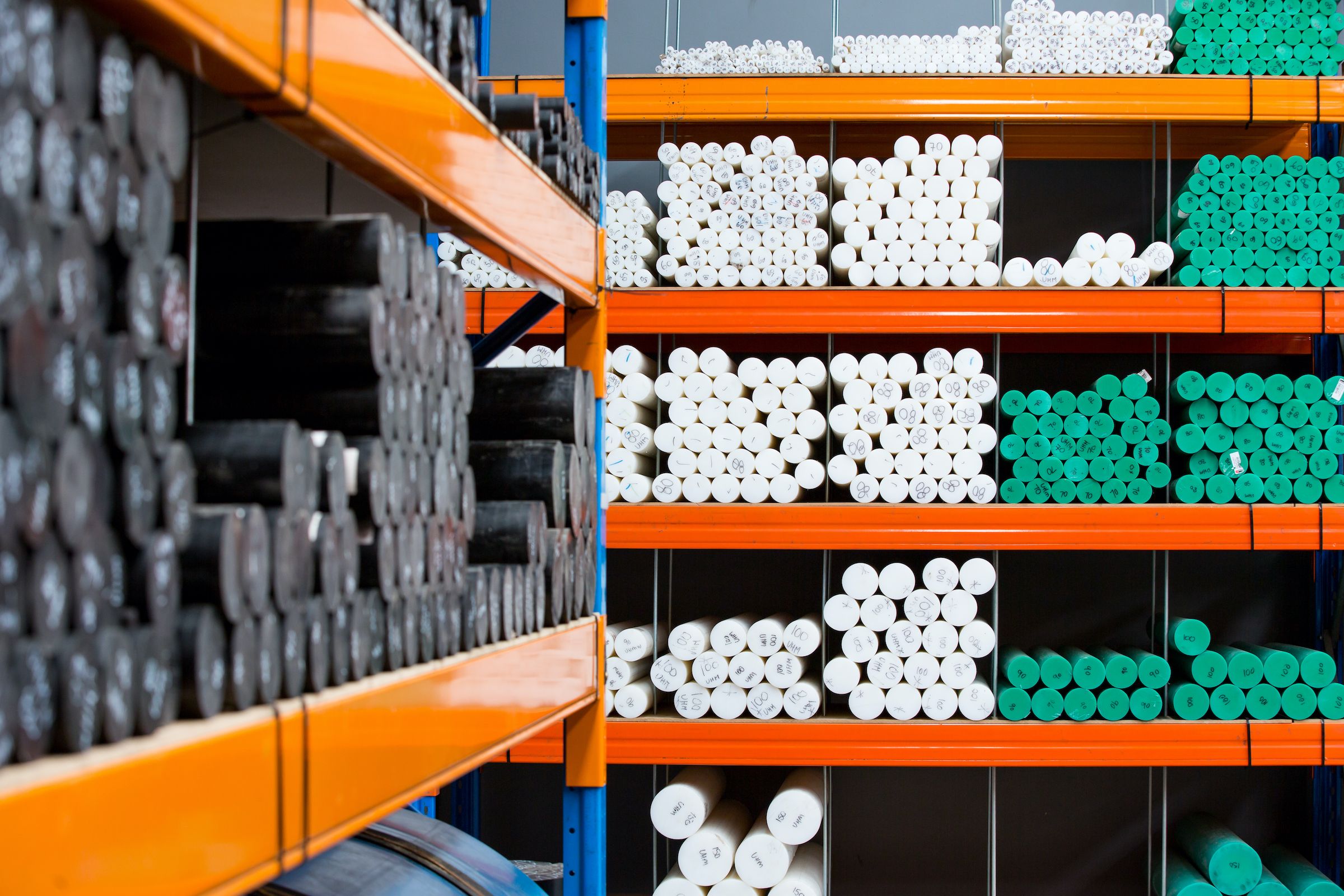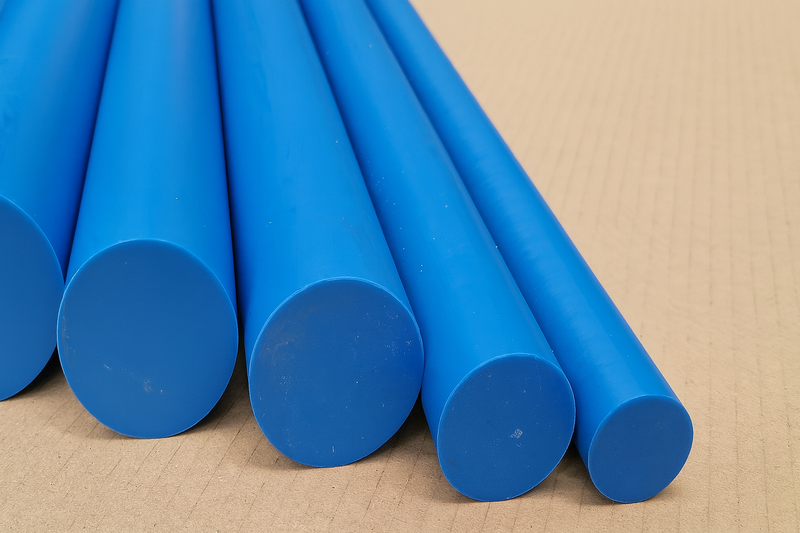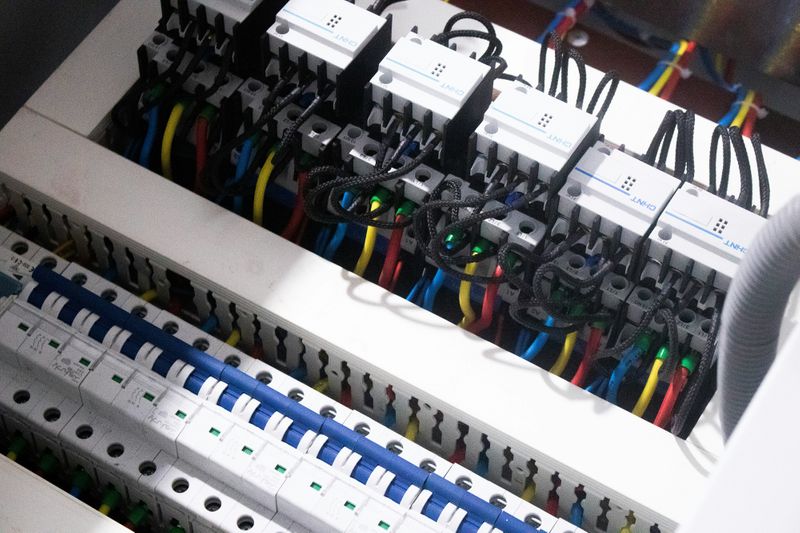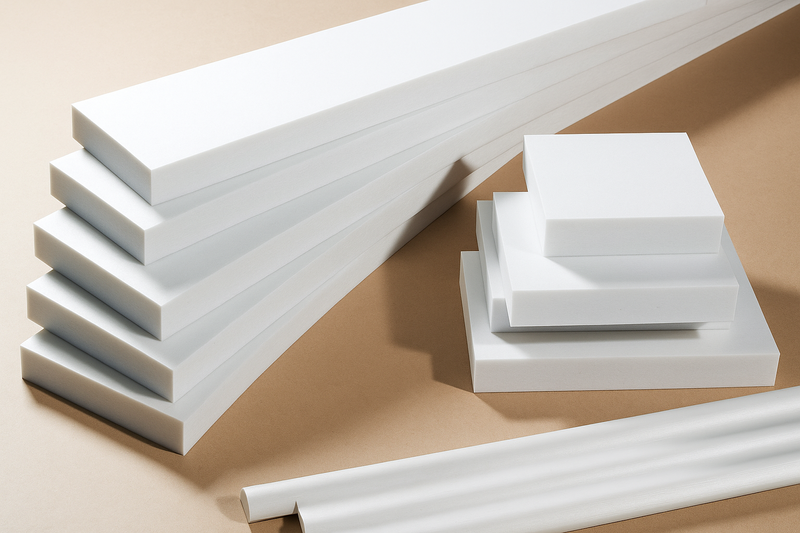At a glance
- Discover the Strength: Extruded nylon offers high tensile strength, durability, and low friction, making it ideal for heavy-duty applications.
- ePol's Reliability: Trust ePol for a consistent and cost-effective supply of top-notch extruded nylon materials.
- Versatile Applications: From bearings and gears to electrical components, explore the wide range of industries benefiting from extruded nylon's exceptional properties.
In the world of engineering materials, nylon stands out as one of the most versatile and widely used thermoplastics. Its applications are virtually limitless, making it a favourite choice across various industries. However, within the realm of nylon, two primary variations exist: cast nylon and extruded nylon.
While these materials might seem similar at first glance, they have distinct differences that impact their performance and applications. In this detailed article, we will delve into the properties of cast nylon, explore its advantages over extruded nylon, and provide readers with a comprehensive understanding of these essential engineering materials.
Understanding Cast Nylon
Nylon, in general, boasts exceptional mechanical properties, making it a preferred choice for engineering machines and instruments. What makes nylon, and particularly cast nylon, special are its unique characteristics:
Mechanical Performance:
Cast nylon exhibits remarkable toughness, strength, and a low coefficient of friction. These properties make it an excellent choice for applications requiring durability and wear resistance.
Cost-Effective:
Nylon's cost is significantly lower compared to alternative materials like metal and rubber. This affordability makes it an attractive option for budget-conscious projects.
Advantages of Cast Nylon Over Extruded Nylon
While both cast and extruded nylon have their merits, cast nylon holds several advantages, especially in specific scenarios:
Cost-Efficiency
Cast nylon is typically more cost-effective to produce, particularly for larger and complex parts. This cost advantage can be a significant factor in project budgets.
Lower Stress Levels
Cast nylon materials inherently have lower stress levels compared to extruded nylon. This results in improved dimensional stability, easier machining, and higher compressive and tensile strength.
Higher Operating Temperature
For projects requiring parts that can withstand high temperatures, cast nylon outperforms extruded nylon. Cast nylon has a slightly higher operating temperature, expanding its range of applications.
Customisability
At Piedmont Plastics, cast nylon is available in various customisable options and colours, allowing for tailored solutions to meet specific project requirements.
Industry Applications
Both cast and extruded nylon find applications in various industries. While they can be used interchangeably in some cases, their specific applications may differ:
Boom Trucks and Outrigger Pads
The durability and load-bearing capacity of cast nylon make it suitable for applications like boom trucks and outrigger pads, where stability and strength are paramount.
Bearings and Bushings
Cast nylon's low friction and high strength properties make it ideal for manufacturing bearings and bushings, ensuring smooth and reliable operation.
Seals and Gaskets
Cast nylon's resistance to wear and its ability to maintain dimensional stability under pressure make it a preferred choice for seals and gaskets.
Star Wheels
Cast nylon's toughness and low friction properties are well-suited for star wheels used in various machinery and conveyor systems.
Thrust Washers
In applications requiring high load-bearing capacity, cast nylon's compressive strength makes it an excellent choice for thrust washers.
Valve Seats
Cast nylon's ability to withstand temperature variations and resistance to wear make it an ideal material for valve seats in industrial settings.
Cast Nylon vs. Extruded Nylon
Let's examine a detailed property comparison between cast nylon and extruded nylon, specifically focusing on Nycast® 6pa Natural and Extruded Natural Nylon 6/6:
|
Property |
Units |
ASTM Test Method |
Nycast ® 6 pa Natural |
Extruded Nylon 6/6 |
|
Specific Gravity |
g/cm3 |
D792 |
1.15-1.17 |
1.15 |
|
Tensile Strength |
psi |
D638 |
10,000 – 13,500 |
11,500 |
|
Tensile Elongation |
% |
D638 |
20 – 55 |
50 |
|
Tensile Modulus |
psi |
D638 |
400,000 – 550,000 |
425,000 |
|
Compressive Strength |
psi |
D695 |
13,500 – 16,000 |
12,500 |
|
Compressive Modulus |
psi |
D695 |
325,000 – 400,000 |
420,000 |
|
Flexural Strength |
psi |
D790 |
15,500 – 17,500 |
15,000 |
|
Flexural Modulus |
psi |
D790 |
420,000 – 500,000 |
450,000 |
|
Shear Strength |
psi |
D732 |
10,000 – 11,000 |
10,000 |
|
Notched Izod Impact |
ft.lbs./in. |
D256 |
0.7 – 0.9 |
0.6 |
|
Hardness, Rockwell R |
- |
D785 |
115 – 125 |
115 |
|
Hardness, Shore D |
- |
D2240 |
78 – 83 |
NV |
|
Melting Point |
deg. F |
D789/D3418 |
450 +/- 10 |
500 |
|
Coefficient Of Linear Thermal Expansion |
in./in./F |
D696/E831 |
6.1 x 10 (-5) |
5.5 x 10 (-5) |
|
Deformation Under Load |
% |
D621 |
0.5 – 2.5 |
NV |
|
Deflection Temperature (264 psi) |
deg. F |
D648 |
200-400 |
200 |
|
Deflection Temperature (66 psi) |
deg. F |
D648 |
400-430 |
N/A |
|
Continuous Service Temperature |
deg. F |
- |
230 |
210 |
|
Intermittent Service Temperature |
deg. F |
- |
330 |
NV |
|
Coefficient Of Friction: Dynamic |
- |
D1894 |
0.22 |
- |
|
Water Absorption – 24 Hours |
% |
D570 |
0.5-0.6 |
0.3 |
|
Water Absorption – Saturation |
% |
D570 |
5.0-6.0 |
7 |
|
Dielectric Strength |
- |
- |
500-600 |
400 |
|
Dielectric Constant (60 Cycles) |
- |
- |
3.7 |
3.6 |
|
Dielectric Constant (1000 Cycles) |
- |
- |
3.7 |
3.6 |
|
Dielectric Constant (100,000 Cycles) |
- |
- |
3.7 |
3.6 |
Best source for high-quality engineering plastics online
ePol plays a significant role in the supply chain of nylon materials, including cast and extruded nylon. As a trusted supplier, ePol connects manufacturers and industries with high-quality nylon products sourced from various reputable manufacturers worldwide. Their commitment to delivering top-notch materials and expertise in plastics procurement makes them a valuable partner in ensuring a steady and reliable supply of nylon for a diverse range of applications.
Whether it's providing the essential components for machinery, bearings, seals, or other critical applications, ePol's dedication to quality and efficiency contributes significantly to the success of industries that rely on nylon materials, helping them achieve optimal performance, longevity, and cost-effectiveness in their operations.
Our range of cast nylon products, proudly represented by the trusted brand Dynex, provides access to high-quality materials tailored to meet your specific engineering requirements, whether you need rods or sheets.
While choosing between cast nylon and extruded nylon depends on specific project requirements, the advantages of cast nylon often outweigh those of its extruded counterpart. Cast nylon's lower cost, superior dimensional stability, and higher operating temperature make it a valuable choice for various engineering applications. As you embark on your next project, consider the unique properties and benefits of cast nylon, and explore how this exceptional material can enhance the performance and longevity of your components.
For more insights and information on cast nylon, visit trusted suppliers, ePol.
When it comes to engineering materials, the choice matters, and cast nylon proves to be a winning solution for many applications. Explore the possibilities, and unlock the potential of this remarkable engineering material.








